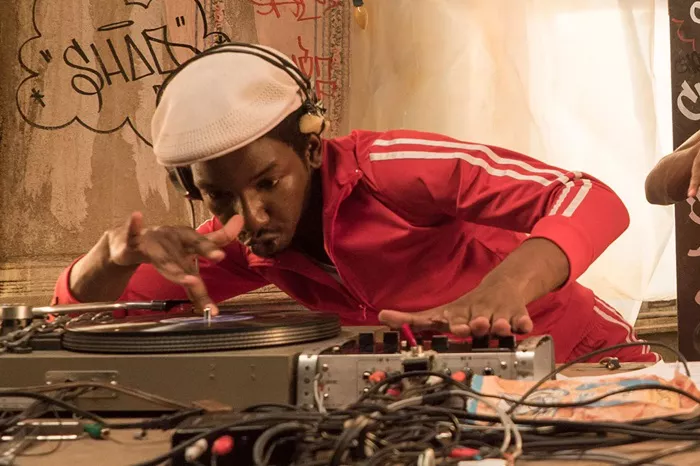Hip hop, one of the most influential cultural movements of the 20th century, has its roots deeply embedded in the creativity and innovation of early DJs. These pioneers not only created a new genre of music but also laid the groundwork for an entire culture that would influence music, fashion, art, and language across the globe. This article delves into the ways early hip hop DJs crafted a new musical form, exploring their techniques, influences, and the broader impact of their innovations.
The Birth of Hip Hop: Context and Origins
The South Bronx and Cultural Melting Pot
In the 1970s, the South Bronx in New York City was a neighborhood characterized by poverty, crime, and urban decay. Despite these challenges, it was also a melting pot of cultural diversity, home to African American, Latino, and Caribbean communities. This cultural richness played a crucial role in the birth of hip hop, providing a fertile ground for artistic experimentation and expression.
Block Parties and the Rise of DJ Culture
Block parties were a common occurrence in the South Bronx, serving as a social gathering point where music was a central element. DJs, who were responsible for providing the music, began to experiment with different ways of engaging the crowd. This experimentation laid the foundation for hip hop.
Innovative Techniques of Early Hip Hop DJs
Breakbeats and the Art of Looping
One of the most significant contributions of early hip hop DJs was the discovery and use of breakbeats. A breakbeat is a section of a song where the rhythm section breaks down to its most basic elements, often featuring a prominent drum beat. DJ Kool Herc, considered one of the founding figures of hip hop, popularized the technique of isolating these breaks and looping them to create a continuous beat. By using two turntables and a mixer, Herc extended these break sections, allowing dancers, known as B-boys and B-girls, to showcase their moves for longer periods.
Scratching: Transforming Turntables into Instruments
Grandmaster Flash and Grand Wizard Theodore were instrumental in developing the technique of scratching. Scratching involves moving a vinyl record back and forth on a turntable to produce percussive sounds and effects. This technique transformed the turntable into a musical instrument, allowing DJs to add a new layer of creativity to their sets. Scratching became a hallmark of hip hop music and continues to be a defining feature of the genre.
Mixing and Blending: Crafting Seamless Soundscapes
Early hip hop DJs were also adept at mixing and blending tracks to create seamless transitions between songs. By carefully matching the tempo and key of different records, DJs could maintain a continuous flow of music, keeping the energy high on the dance floor. This skill required a deep understanding of music and rhythm, as well as technical proficiency with the equipment.
Influences and Inspirations
Funk, Soul, and Disco: The Soundtrack of Hip Hop
The music that early hip hop DJs played at block parties was heavily influenced by funk, soul, and disco. Artists like James Brown, Sly and the Family Stone, and George Clinton provided the breakbeats that became the foundation of hip hop. The rhythmic complexity and infectious grooves of these genres resonated with DJs and dancers alike, shaping the sound of early hip hop.
Jamaican Sound System Culture
Jamaican sound system culture also played a significant role in the development of hip hop. DJs in Jamaica, known as selectors, would play records at street parties and use their sound systems to engage the crowd. This practice was brought to New York by Jamaican immigrants, including DJ Kool Herc, who applied similar techniques to his sets. The emphasis on bass, rhythm, and crowd interaction in Jamaican music was a direct influence on hip hop.
The Impact of Early Hip Hop DJs
The Birth of Rap
The innovations of early hip hop DJs paved the way for the emergence of rap. MCs (Masters of Ceremony) began to accompany DJs, using rhythmic speech to engage the crowd, tell stories, and showcase their lyrical skills. This combination of DJing and MCing became the cornerstone of hip hop music, leading to the development of rap as a distinct art form.
The Creation of a Cultural Movement
Beyond the music, early hip hop DJs helped to create a cultural movement that included dance (breakdancing), visual art (graffiti), and fashion. Hip hop became a way for marginalized youth to express themselves, tell their stories, and assert their identity. The DIY ethos of hip hop encouraged creativity and innovation, inspiring countless artists and creators.
Global Influence and Legacy
The techniques and innovations of early hip hop DJs have had a lasting impact on music and culture worldwide. Hip hop has become a global phenomenon, influencing genres from pop to electronic dance music. The principles of sampling, remixing, and looping pioneered by hip hop DJs are now common practices in music production. Moreover, the cultural elements of hip hop continue to inspire movements around the world, from street art to fashion.
See Also: How Hip-Hop Music Has Influenced American Culture and Society?
Conclusion
Early hip hop DJs were true innovators, transforming the musical landscape with their creativity and technical prowess. By pioneering techniques like breakbeat looping, scratching, and seamless mixing, they created a new form of music that would evolve into a global cultural movement. Their legacy is evident in the continued influence of hip hop on music, art, and society. The story of these DJs is a testament to the power of creativity and the enduring impact of grassroots cultural movements.

